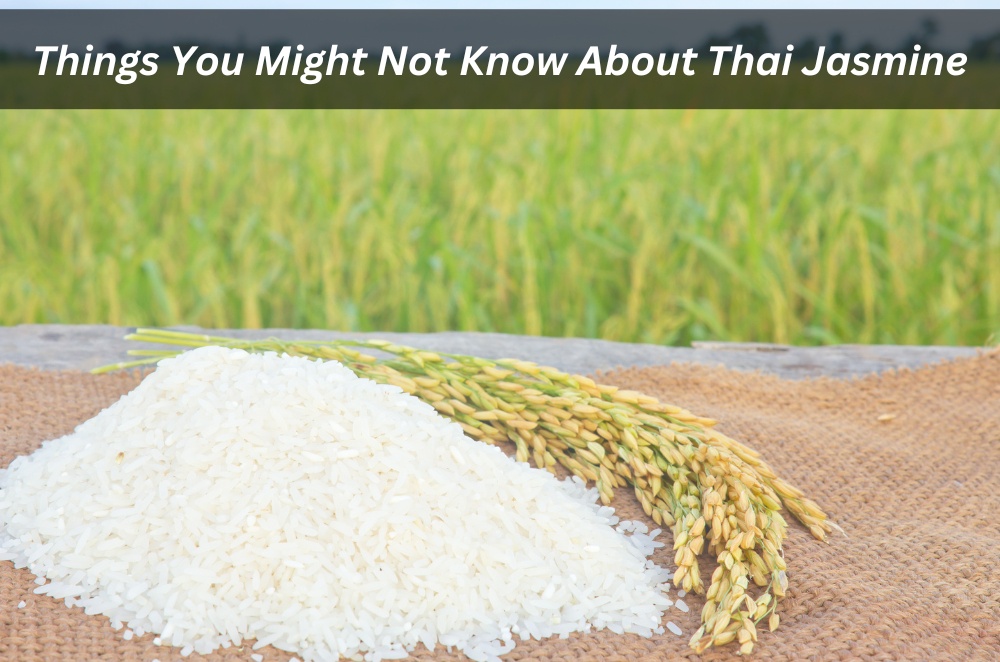Thai Jasmine rice, also known as Thai fragrant rice or Thai hom mali rice, is a type of rice that is popular in Southeast Asian cuisine. It is known for its delicate texture, sweet aroma, and nutty flavor. It is a long-grain rice that is commonly used in stir-fried dishes, curries, and as a side dish.
Jasmine rice is believed to have originated in Thailand, where it has been cultivated for centuries. The rice is grown in the central region of Thailand, along the Chao Phraya River. It is said that the rice was originally grown for the Thai royal family, who favored its delicate texture and fragrant aroma.
History and origins of Jasmine Thai rice
Jasmine Thai rice has been cultivated in Thailand for over 100 years. It is believed to have originated in the Chao Phraya River basin in central Thailand. Today, it is still primarily grown in Thailand, but it is also grown in other countries such as Cambodia, Vietnam, and Laos.
Nutritional benefits of Jasmine rice
Thai Jasmine is not only recognised for its aromatic jasmine flowers but is also a good source of folate, which is essential for the healthy development of the neural tube in babies during pregnancy.
It is a variety that is known for its health benefits. It is a type of white jasmine rice, which means it has been stripped of its bran and germ layers. This makes it less nutritious than brown jasmine rice, but it still contains important nutrients such as vitamin B1. It is also low in fat and sodium.
It is a good source of vitamin B1 and contains no cholesterol, making it a healthy choice for those who are watching their diet. Additionally, it is a whole grain that is high in fiber, which promotes healthy digestion.
Differences between Thai Jasmine and other types of rice
Thai Jasmine rice is a type of rice, which is a variety of rice that is known for its fragrant aroma. There are several other varieties of jasmine rice, but Thai Jasmine rice is considered to be the highest quality. It is also different from other types of rice such as basmati rice and sushi rice, which are both short-grain rice varieties.
Importance of water in cooking
Water is a crucial element in cooking Jasmine rice. The rice should be rinsed several times in cold water until the water runs clear. Then, the rice should be soaked in water for at least 15 minutes before cooking. The ratio of water to rice should be 1.5 to 1, which means that for every cup of rice, 1.5 cups of water should be used.
To properly wash Jasmine rice, it should be rinsed several times in cold water until the water runs clear. Then, the rice should be soaked in water for at least 15 minutes before cooking. To cook the rice, bring the water to a boil and then reduce the heat to low. Cover the rice and let it simmer for about 18-20 minutes.
Tips for storing Thai rice properly
Jasmine rice should be stored in an airtight container to prevent moisture from getting in. It should also be kept in a cool, dry place away from sunlight. If stored properly, Jasmine rice can last for up to six months.
Thai cuisine features many dishes that use Jasmine rice as a staple ingredient. Some popular dishes include stir-fried rice with vegetables, pineapple fried rice, and chicken curry with rice.
Myth-busting common misconceptions about Thai Jasmine
Some people believe that Thai Jasmine rice is not as healthy as other types of rice, but this is not true. While brown jasmine rice is more nutritious, Jasmine rice still contains important nutrients such as vitamin B1.
Additionally, some people believe that you should not rinse Thai Jasmine rice before cooking, but this is not true. Rinsing the rice helps to remove excess starch and impurities. Another misconception is that Thai Jasmine rice is only available in white varieties. In fact, there are also red and purple varieties of Thai Jasmine rice.
Thai Jasmine rice is becoming more popular in global cuisine, as more people discover its unique flavor and texture. If you’re looking for a brand that produces quality rice, try searching for Lion Brand and Sun Rice. As global demand for rice grows, it is likely that Thai Jasmine rice will continue to be an important crop for Thailand and other Southeast Asian countries. Additionally, Thai Jasmine rice's association with promoting healthy pregnancy is also expected to increase its demand in the global market.


No comments yet